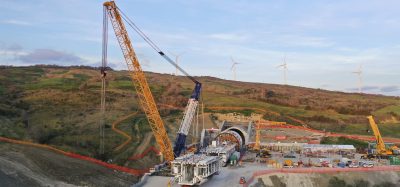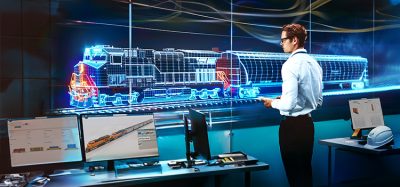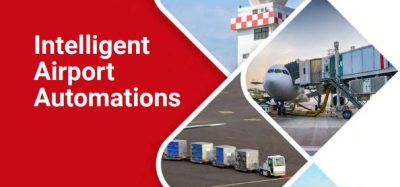Equipped for the future with an Integrated Control System
Posted: 16 October 2017 | DB Netz AG, Swiss Federal Railways (SBB) | No comments yet
The German infrastructure manager DB Netz AG is currently piloting its new control system in Duisburg. Dr. Christian Gruß, Head of the companies Traffic Management and Operations division, highlights in an interview whether the nationwide roll-out of the first stage of development is on track for 2020…


Mr Gruß, in 2015 DB Netz AG decided to replace its rail control system. In order to keep up with the era of digitalisation and make use of future, global opportunities, DB Netz AG opts for the innovative Rail Control System (RCS) by the Swiss Federal Railways (SBB). What has convinced you that RCS was the best option?


Dr. Christian Gruß, Head of Traffic Management and Operations division at DB Netz AG
Our present system will reach the end of its lifecycle in December 2019. Therefore, we had to find a replacement. In addition, German rail operations must keep their pace with the ongoing digitalisation in order to be able to take advantage of future opportunities –as automated (at least partially automated) identification and resolution of conflicts are becoming important aspects of modern traffic control. In our opinion, SBB’s Rail Control System (RCS) offers an excellent platform for our needs. The open system, which we can develop further according to our needs and by using our own resources, presents a further advantage for us. Other European infrastructure managers have also opted for RCS, which is certainly a good thing for future cooperation in traffic management and operations. Which adaptations and further developments are you carrying out?
Together with SBB we are continuing to develop RCS as a dispatch control system. However, we notice time and again that the railway system works slightly differently in our countries for various reasons. In Switzerland, for example, reasons for delays and incident documentation for disruptions are not carried out by the control system. Furthermore, the communication with our (RU) customers via the technical interfaces is not comparable with that of Switzerland. Functionalities like these of course need to be in place in our IT system, which we are making the necessary changes for.
As I have already mentioned, the most innovative development which is currently being planned in Germany, is the implementation of an automated conflict identification and resolution system. For us in operations, this is the foundation for a modern and efficient capacity management. In future, we will need to build on and further develop this system in order to optimise traffic in larger areas simultaneously and in real time. We are already working on the basics in order to be able to provide new functions for a productive software in the future.
What are the biggest challenges regarding the implementation?
The replacement of our traffic management systems is currently the biggest IT project at DB Netz AG. There are many challenges of an IT project of this magnitude such as the enormous amounts of data that needs to be processed properly. The traffic situation overview is created from more than 20.000 train location reports per minute, which have to be assigned to one of approximately 40.000 timetables per day and are used to forecast the trains’ further progress. Moreover, we need to keep our employees up to date and offer them training courses in a timely manner. Furthermore, we have to train about 2.000 employees in the eight traffic management centres and more than 10.000 employees in various regions. As you can imagine, accomplishing this in parallel with ongoing, everyday rail services poses a huge challenge.
However, we have a great team and are working energetically and with the maximum dedication on the development of our new control system.
How are you getting on?
We are making good progress in line with our defined schedule. Our speed of execution is just right, the team is motivated, the cooperation with SBB is working very well, as is our project structure (we are organised according to the modern SAFe framework). Part of our approach is to take pilot operations out into the field very early on. Therefore, we were already able to carry out successful pilot operations in Munich in the second half of 2016 and in Duisburg in the second half of 2017. This enables us with a quick and timely feedback about what is working well and what we still need to improve. However, it will still take some time before we can make a productive use of the first stage of our new system. The control system must be reliable and work well in a complex IT environment. In order to ensure a smooth functioning we are planning to launch a comprehensive parallel operation to the existing system towards the end of 2019 which we will also use to control whether a timetable change (December 2019) will work reliably in the new system. Once everything has been tested thoroughly, the new system will be in operation by early 2020.
Dr. Christian Gruß
Mr Christian Gruß, born 1977 is the Head of the Traffic Management and Operations division at DB Netz AG since 2014. Since 2008, he has worked in several positions for the DB Group such as in the timetable planning and the group strategy divisions.
Prior to his role at DB Group, he has completed his doctorate on “price-based capacity management” and has worked as a consultant for numerous manufacturing companies in Europe.







